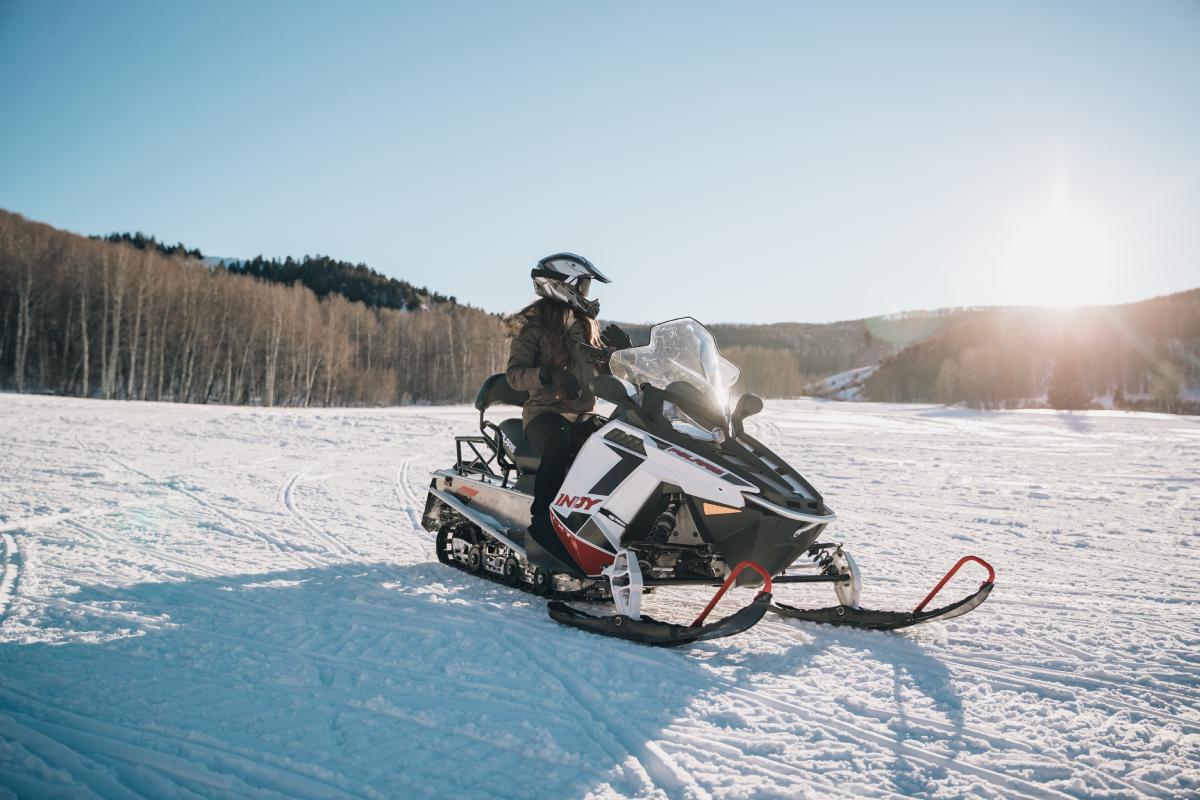Five offences you can be fined for in Norway's great outdoors

Norway's nature is the envy of the world, and hundreds of thousands of tourists flock to the country each year to explore it. But visitors can get hit by hefty fines if they break these rules.
With its jaw-draping landscapes, majestic mountains, and pristine fjords, it's no wonder that visiting Norway ends up so high on many a traveller's bucket list.
Furthermore, the country's laws (the famous Allemannsretten, which translates into "everyman's right") are designed to ensure that people can roam free on uncultivated land.
While that means that you cannot freely explore privately owned land, meadows, pastures, gardens, building plots, and industrial sites, virtually all other terrain is fair game – especially when it comes to the Norwegian outdoors.
However, some outdoor activities are strictly regulated, and can often result in fines, so watch out for these five things you can get fined for when camping, picking berries, or just generally enjoying Norway's nature.
Camping and picnicking restrictions
As we already hinted in our introduction on the Allemannsretten, your "right to roam" in Norway stops when you encounter cultivated land.
As the Norwegian Outdoor Recreation Act further clarifies, it is not permitted to use sites on cultivated land for picnicking, sunbathing, staying overnight or the like without getting the land owner's or user's permission.
Furthermore, even in uncultivated areas, it is not permitted to use sites for these purposes in a way that unduly inconveniences others. A tent must not be pitched so close to an inhabited house or cabin that it disturbs the occupants or closer than 150 metres from inhabited dwellings (this doesn't apply to areas specifically designated for camping).
Picnicking and camping must also not take place in a way that may cause significant damage to a young or regenerating forest, and there are camping restrictions in place for protected areas (such as national parks and nature reserves).
If you breach these rules, you can expect got get a fine. In 2021, a camper in Rogaland County in western Norway had to pay a fine of 8,000 kroner for setting up a tent in a protected area.
Careful where you pick cloudberries
Generally speaking, the "right to roam" principle allows you to pick berries and mushrooms across the country. This also applies to the most coveted berry in the country – the cloudberry. There are some limitations, though.
Once again, your right extends to uncultivated land – so you shouldn't pick cloudberries too close to other people's houses.
Furthermore, there are special rules in place for picking cloudberries in the counties of Nordland and Troms og Finnmark, where people cannot pick cloudberries and bring them home if there are signs that says that the cloudberries are considered private property.
Picking cloudberries and eating them on site is allowed – just make sure not to collect cloudberries and take them away from the location. Doing so could get you in trouble and, if you're reported, you might even get fined.
If there's no sign declaring the cloudberries as private property, you're free to do as you please.

You'll likely need a special permit to drive a snowmobile in the Norwegian outdoors. Photo by Spencer Davis on Unsplash
Snowmobile adventures
Driving a snowmobile in Norway is strictly regulated, and the vehicle can only be used in some areas of the country - or if you have a special permit for using it at a select destination.
To drive a snowmobile in the Norwegian outdoors, you'll most likely need to get a permit that specifies where you're allowed to drive the vehicle (for example, for trips to your cabin and back).
That means that – even with a permit – you'll need to stick to the location to which the permit applies.
There are few areas in Norway where driving snowmobiles is generally allowed, and most of them can be found in the northern parts of the country.
Should you fail to follow the rules related to driving a snowmobile in Norway, expect to get an expensive fine. In 2019, the state broadcaster NRK reported that people caught illegally driving snowmobiles in Norway received fines ranging from 8,000 to 15,000 kroner.
Some had to pay more because of high speed or because the vehicle was not registered.
Some flowers and plants are protected by law
Some flowers and plants in Norway fall under the protected species category, meaning that picking them could land you in hot water.
While picking some of these plants will result in a fine, some might even trigger jail sentences.
At the time of writing, around 50 species of vascular plants and mosses were protected in Norway under regulations on the protection of endangered species.
The full list of species is available online (in Norwegian).
As the Norwegian Ministry of Climate and Environment points out on the government's website, the illegal collection of protected plants can result in imprisonment – depending on the severity of the offence.
Keeping your dog off a leash in the summer
If you're visiting Norway in the spring or the summer, know that – by law – dogs need to be kept on a leash between April 1st and August 20th.
The regulation is intended to protect Norwegian wildlife, as many animals tend to have offspring in the springtime.
Aside from the general country-level leash rules, you might find even stricter local regulations in some areas of the country.
Breaking the leash regulations can result in a hefty fine (according to an NRK report, fines in Asker and Bærum start at 3,000 kroner, while fines in Romerike start at 4,000 kroner) or imprisonment of up to six months.
Comments
See Also
With its jaw-draping landscapes, majestic mountains, and pristine fjords, it's no wonder that visiting Norway ends up so high on many a traveller's bucket list.
Furthermore, the country's laws (the famous Allemannsretten, which translates into "everyman's right") are designed to ensure that people can roam free on uncultivated land.
While that means that you cannot freely explore privately owned land, meadows, pastures, gardens, building plots, and industrial sites, virtually all other terrain is fair game – especially when it comes to the Norwegian outdoors.
However, some outdoor activities are strictly regulated, and can often result in fines, so watch out for these five things you can get fined for when camping, picking berries, or just generally enjoying Norway's nature.
Camping and picnicking restrictions
As we already hinted in our introduction on the Allemannsretten, your "right to roam" in Norway stops when you encounter cultivated land.
As the Norwegian Outdoor Recreation Act further clarifies, it is not permitted to use sites on cultivated land for picnicking, sunbathing, staying overnight or the like without getting the land owner's or user's permission.
Furthermore, even in uncultivated areas, it is not permitted to use sites for these purposes in a way that unduly inconveniences others. A tent must not be pitched so close to an inhabited house or cabin that it disturbs the occupants or closer than 150 metres from inhabited dwellings (this doesn't apply to areas specifically designated for camping).
Picnicking and camping must also not take place in a way that may cause significant damage to a young or regenerating forest, and there are camping restrictions in place for protected areas (such as national parks and nature reserves).
If you breach these rules, you can expect got get a fine. In 2021, a camper in Rogaland County in western Norway had to pay a fine of 8,000 kroner for setting up a tent in a protected area.
Careful where you pick cloudberries
Generally speaking, the "right to roam" principle allows you to pick berries and mushrooms across the country. This also applies to the most coveted berry in the country – the cloudberry. There are some limitations, though.
Once again, your right extends to uncultivated land – so you shouldn't pick cloudberries too close to other people's houses.
Furthermore, there are special rules in place for picking cloudberries in the counties of Nordland and Troms og Finnmark, where people cannot pick cloudberries and bring them home if there are signs that says that the cloudberries are considered private property.
Picking cloudberries and eating them on site is allowed – just make sure not to collect cloudberries and take them away from the location. Doing so could get you in trouble and, if you're reported, you might even get fined.
If there's no sign declaring the cloudberries as private property, you're free to do as you please.

Snowmobile adventures
Driving a snowmobile in Norway is strictly regulated, and the vehicle can only be used in some areas of the country - or if you have a special permit for using it at a select destination.
To drive a snowmobile in the Norwegian outdoors, you'll most likely need to get a permit that specifies where you're allowed to drive the vehicle (for example, for trips to your cabin and back).
That means that – even with a permit – you'll need to stick to the location to which the permit applies.
There are few areas in Norway where driving snowmobiles is generally allowed, and most of them can be found in the northern parts of the country.
Should you fail to follow the rules related to driving a snowmobile in Norway, expect to get an expensive fine. In 2019, the state broadcaster NRK reported that people caught illegally driving snowmobiles in Norway received fines ranging from 8,000 to 15,000 kroner.
Some had to pay more because of high speed or because the vehicle was not registered.
Some flowers and plants are protected by law
Some flowers and plants in Norway fall under the protected species category, meaning that picking them could land you in hot water.
While picking some of these plants will result in a fine, some might even trigger jail sentences.
At the time of writing, around 50 species of vascular plants and mosses were protected in Norway under regulations on the protection of endangered species.
The full list of species is available online (in Norwegian).
As the Norwegian Ministry of Climate and Environment points out on the government's website, the illegal collection of protected plants can result in imprisonment – depending on the severity of the offence.
Keeping your dog off a leash in the summer
If you're visiting Norway in the spring or the summer, know that – by law – dogs need to be kept on a leash between April 1st and August 20th.
The regulation is intended to protect Norwegian wildlife, as many animals tend to have offspring in the springtime.
Aside from the general country-level leash rules, you might find even stricter local regulations in some areas of the country.
Breaking the leash regulations can result in a hefty fine (according to an NRK report, fines in Asker and Bærum start at 3,000 kroner, while fines in Romerike start at 4,000 kroner) or imprisonment of up to six months.
Join the conversation in our comments section below. Share your own views and experience and if you have a question or suggestion for our journalists then email us at [email protected].
Please keep comments civil, constructive and on topic – and make sure to read our terms of use before getting involved.
Please log in here to leave a comment.